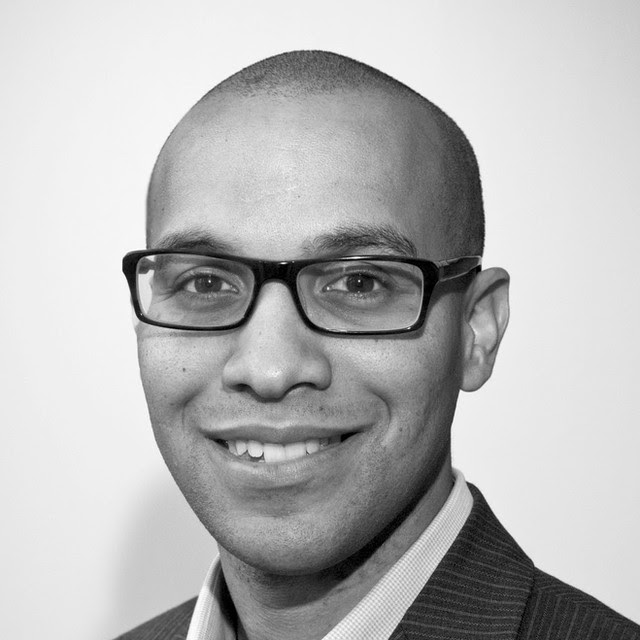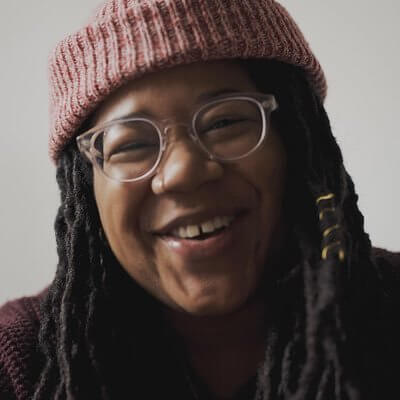

Written by Hadriana Lowenkron
From Black Lives Matter and police brutality, to COVID-19 and racial disparities in public health, millions of people took to the streets last summer to protest injustice. For many Americans, however, their words and posters do not match their financial investments — a disconnect two organizations are attempting to fight in Philadelphia and throughout the country.
With the support of funders, grants, and donations, Cory Donovan, executive director of ImpactPHL, and Ryan Bowers, cofounder of Activest, plan to propel the city and the country into leaders of a global impact economy that demands fiscally just communities through impact investing.
“2020 was really a triple whammy with COVID-19, Black Lives Matter, and climate change all highlighting to people that something is very broken,” Donovan told The Plug. “[Americans] donated more, they volunteered more, they voted their values, and they protested, but if you were out protesting for Black Lives Matter and your 401k is invested in the for-profit prison system, look at your left hand, look at your right hand, and then look in the mirror.”
Donovan was first drawn to impact investing after realizing that few people are aware that they can “do good” and “do well” simultaneously.
“Most of us have been taught or have adopted this two pocket version of doing good and making money, where we make money with one hand and we do good with the other and the two have nothing to do with each other,” he said. “But Philadelphia has an ecosystem of organizations and people, including Ben Franklin Technology Partners, B lab, The Reinvestment Fund, and Social Venture Circle, where we’re thinking how we can make money while doing good, and make sure that, first and foremost, we’re not doing harm with how we’re making money.”
Originally from the tech startup space, Donovan found that, in some instances, the tech ecosystem’s distinct focus on innovating inadvertently creates its own problems by concentrating wealth inequality, citing disparities in who gets investment capital and the lack of Black-, brown-, and women-owned companies.
“I took a sidestep in my career into this impact space … [which] is a horizontal way of applying a methodology or a thought process to how you make your money, whether you’re running a company, or you’re making investments, or you’re employed at a job and investing your 401k,” he said. “That was really interesting to me as someone who wanted to do good and wanted to create a better world.”
Ryan Bowers, who co-founded Activest in 2016, also noted society’s yearning to do good and do well, or in his words, “have their cake and eat it too,” and warned of a downside of impact investing: complacency.
“Correcting a nation that’s drunk on, and addicted to, racial oppression, white supremacy, and now overrun with actual white supremacists storming the Capitol and not being held accountable for it, is more than just doing good and doing well,” he said. “The problem is people are fooled into thinking that they’re doing something about the world, when in reality it’s an opiate of the masses, really just a completely innocuous shot, that is making people think that this is what change looks like.”
Bowers aims to seek structural change on racial justice through the municipal bond market in an effort to hold local and state governments accountable for their policies.
After Michael Brown was shot and killed by Ferguson, Mo. police in 2014, a Department of Justice report found that the city’s law enforcement practices are shaped by a focus on revenue as opposed to public safety needs, wherein 23% of the city’s 2015 municipal budget was funded by fines and fees, compared to 13% in 2012.
In response to public outcry and lawsuits, credit agencies lowered the city’s credit rating, causing investors to sell. At the current rate, the city could face dissolution. The financial fallout from Ferguson was an “aha moment” for Bowers, and motivated Activest to see whether other “Fergusons” could spur around the country.
“Our whole purpose is to expose these injustices in the municipal market, and then use research tools to push for disclosure, and make the logical case that investing in municipalities is supposed to be a public purpose thing. It’s supposed to be low risk and for the benefit of the community,” Bowers said. “What we’re seeing local governments do is engage in practices that are neither good for its residents, nor good for the investors, so you have to ask the question: who is it good for?”
Activest develops municipal investment strategies and products aimed at investing in Black communities. The company also holds campaigns with community organizers, local stakeholders, and municipal investors based on research and reports on the effects of city budgets and financial practices on community justice.
Research from a 2019 bondholder engagement campaign Activest co-launched with ACRE Campaigns, which urges municipal investors to pressure Chicago city officials to stop covering municipal legal settlement costs with funds from the city’s bonds, found that Chicago spent $360 million on police-related settlements and judgments between 2010 and 2016, and used $484.3 million in bond proceeds to pay for settlements and judgements. The report estimates that the total dollar amount of judgments and settlements related to cases against the Chicago Police Department is similar to the amount the city is borrowing to pay for its judgments and settlements.
“We call the bonds used to cover police related settlement and judgment costs ‘police brutality bonds,’ because they quite literally allow banks and wealthy investors to profit from police violence,” the report reads. “This is a transfer of wealth from communities — especially over-policed communities of color — to Wall Street and wealthy investors.”
At ImpactPHL, Donovan provides individuals a free consultation to help them understand where their assets lie using Invest Your Values. The software analyzes and grades the extent to which people’s mutual fund investments align with fossil free funds, gender equality funds, gun free funds, deforestation free funds, tobacco free funds, prison free funds, and more.
Donovan also works with corporations to help revamp their employer-provided 401k plan so employees can partake in impact investing.
“As an employee of a company, you can only invest in the mutual funds that your employer offers. So if your employer is offering you funds that invest in prisons, discriminate against women, and invest in deforestation, oil, and guns, you don’t have a choice, so the company has to change its offerings,” Donovan explained.
Because ImpactPHL is an advocacy organization, and not an SEC-licensed broker-dealer, it does not make specific recommendations on what specifically to invest in, but rather directs people to their financial advisor and encourages them to be intentional in their investing.
Some investment opportunities that the organization has highlighted range from funds such as the Pro Disinfect Coalition, which provides low-interest loans to local Black and brown cleaning businesses to compete for COVID-19 contracts, to Black-owned enterprises such as Stimulus, which uses data and analytics to help clients make better purchasing decisions.
Donovan’s ultimate goal is for people not only to invest in areas that align with their political and personal values, but also to invest locally, despite the system being set up to funnel money to Wall Street to invest in public companies. For Philadelphians, that means giving back to the community through community development financial institutions such as the Reinvestment Fund and the Enterprise Center.
“Our vision would be for Philadelphia’s collective wealth and financial power to be invested in ways that eliminate or reduce the problems we create and ideally be aligned with the investment opportunities that help to create a better Philadelphia,” he said.
For Bowers, who has worked in Philadelphia for years, there are three lingering questions about the current municipal investment strategy.
“Inequalities are still enormous; we’re the largest poor city, but we have so much wealth that’s concentrated and prioritized to support neighborhoods that generally aren’t folks that look like you and me,” he said. “So who is Philadelphia for, and how does that show up in our budget and our practices? And what is the impact of our dollars?”
This story is part of a partnership with WURD radio covering technology, business, and innovation in Philadelphia. This vital work is possible with support from the Philadelphia COVID-19 Community Information Fund, an effort by Independence Public Media Foundation (IPMF) and the Knight-Lenfest Local News Transformation Fund (Knight-Lenfest Fund).



